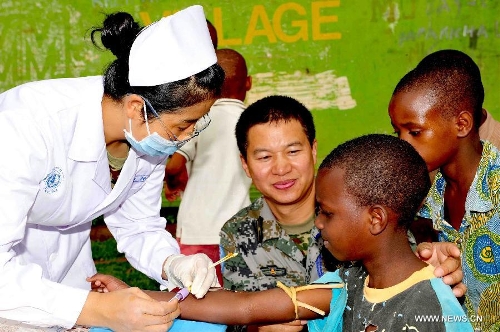 |
| Artemisinin photo credit: |
The Economist of January 25, 2014, carried an article by Shannon van Sant -- Malaria eradication: cure all? that analyzes the fascinating and controversial effort by Chinese researchers, a Chinese drug company, and the Government of the Comoros to eradicate malaria across their three islands, and 700,000 people, using several rounds of an malaria treatment: artemisinin, developed from a Chinese herb, for the entire population, one by one. The questions she raises are good ones. Being myself in the middle of an intensive, months-long IRB (Institutional Review Board) process at Johns Hopkins to allow me to move forward on grant-funded research on Chinese agricultural investment, I can say that (no surprise) it appears that China lags behind in imposing rigorous safeguards for ethical research practice.
- are side-effects being monitored in a systematic way?
- are people who participate doing so with adequately informed consent?
- how commercial is the motivation, given the involvement of China's Ministry of Commerce and the Chinese drug company?
As Nick White, a malaria researcher at Oxford University’s School of Tropical Medicine who has been working for years on eradicating malaria, says, “This research is radical. It is controversial. It is led by a very famous Chinese physician and investigator. There are lots of very serious questions here and a lot of unknowns.” Or, as Oscar Wilde more succinctly put it, “The truth is rarely pure and never simple.”A lot of reporting went into this story. It is very well-balanced and insightful, and pulls in informed voices from different sides of the debate. Other islands (Mauritius, for example) eradicated malaria by compulsory spraying of DDT inside people's houses. This option is no longer available and obviously contained its own risks. I'm not a public health expert -- but I'm interested in comments from readers who are: what is your take on this experiment? What is the WHO position on it?



